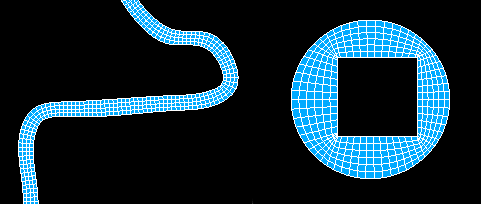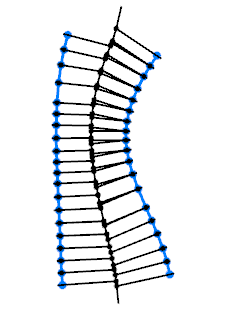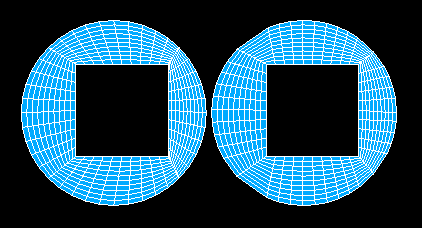Version: 8.3.0
Medial Axis Projection algorithm can be used for meshing faces with sinuous borders and a channel-like shape, for which it can be difficult to define 1D hypotheses such that to obtain a good shape of resulting quadrangles. The algorithm can be also applied to faces with ring topology, which can be viewed as a closed 'channel'. In the latter case radial discretization of a ring can be specified by using Number of Layers or Distribution of Layers hypothesis.

The algorithm provides proper shape of quadrangles by constructing Medial Axis between sinuous borders of the face and using it to discretize the borders. (Shape of quadrangles can be not perfect at locations where opposite sides of a 'channel' are far from being parallel.)

The Medial Axis is used in two ways:
